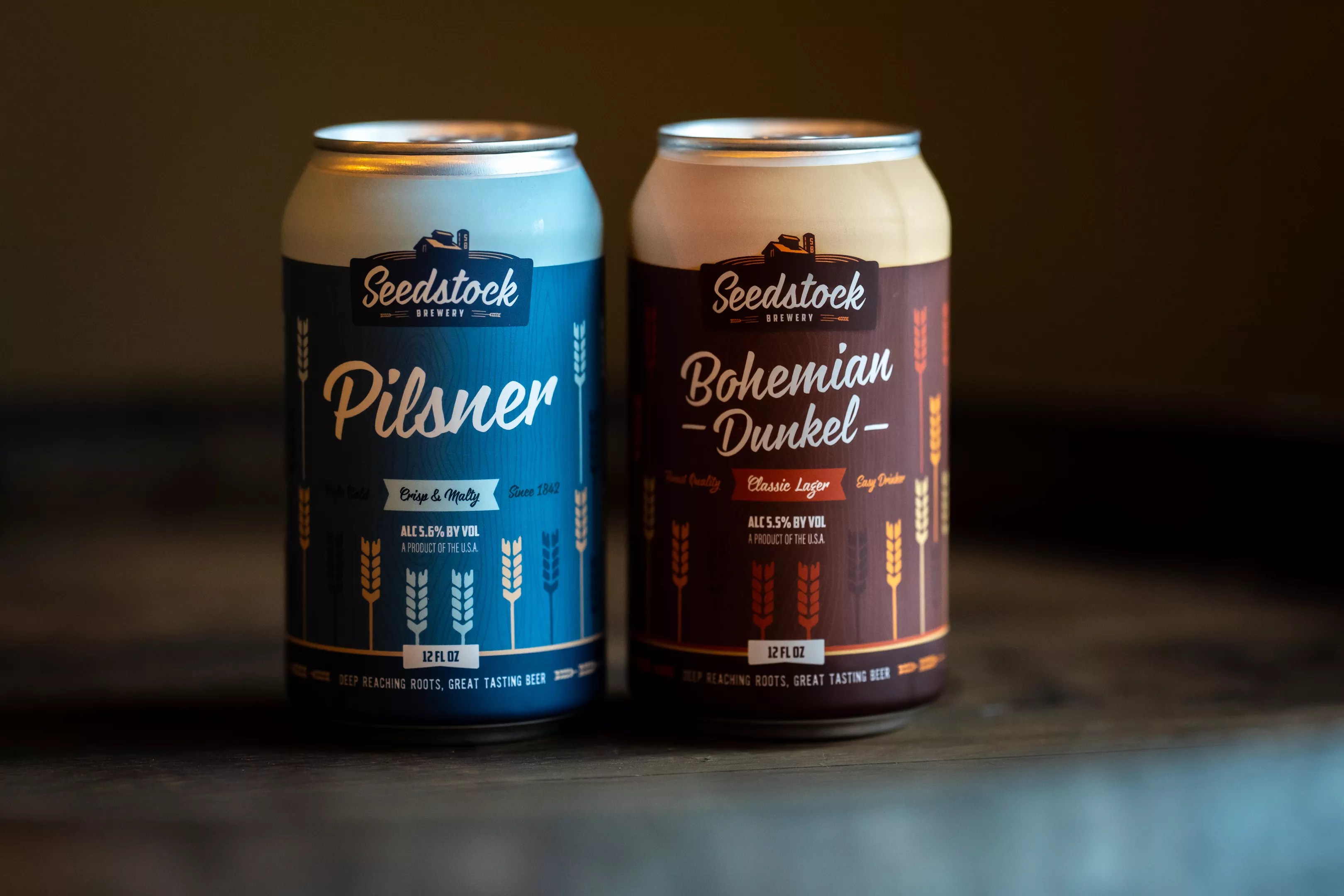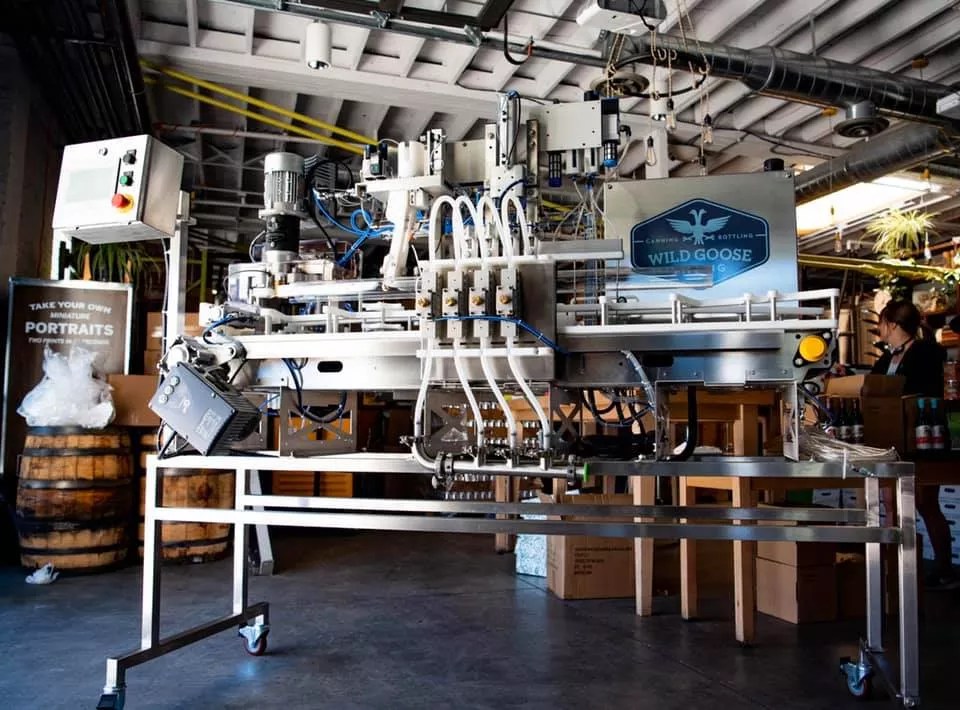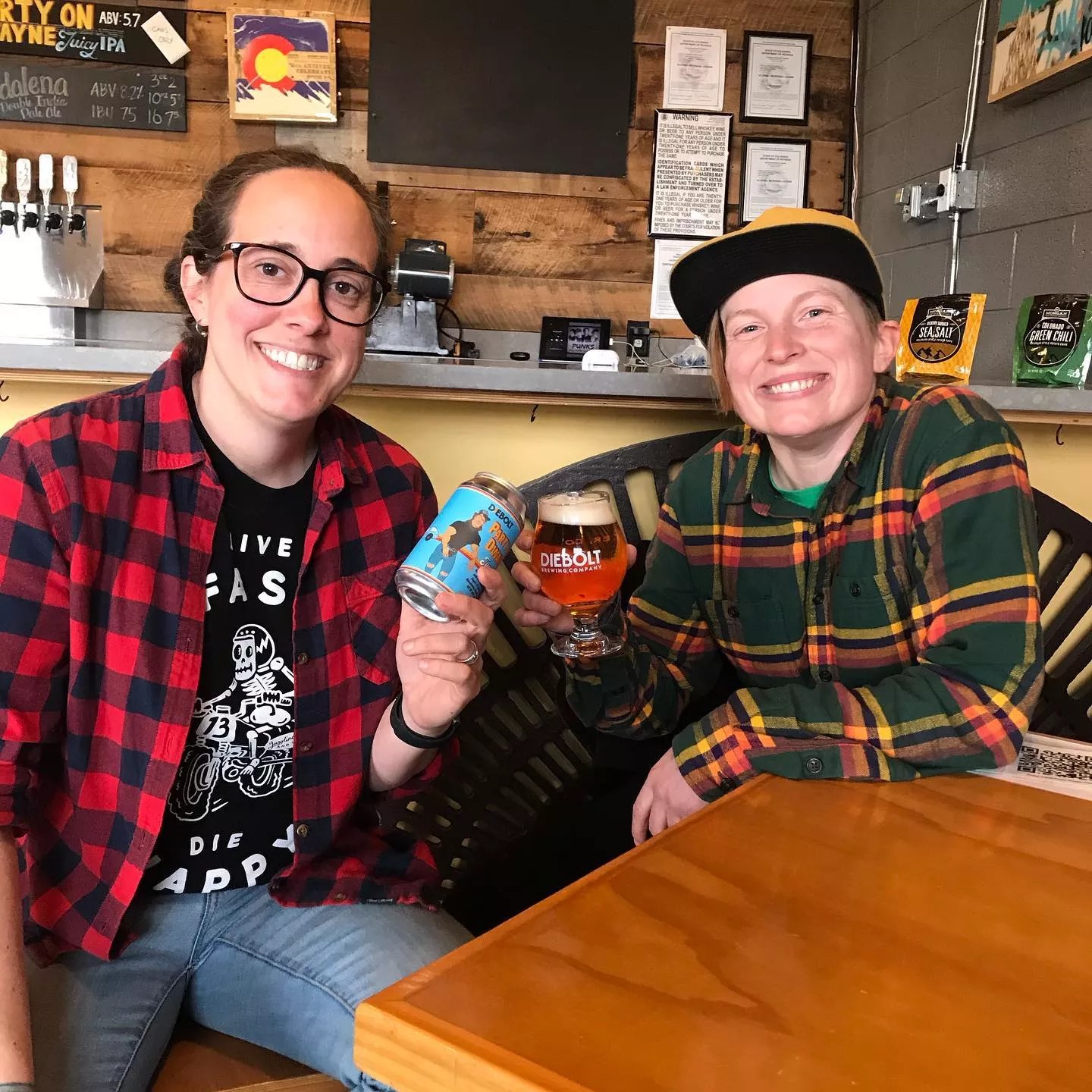
Seedstock Brewing

Audio By Carbonatix
When brewers from small breweries get together these days, the conversation almost always turns to something now familiar: how to get more beer into cans for takeout sales. The topic is bizarre (you might even say uncanny) for some brewers, especially those who had little or no interest in canning their beer before the COVID-19 pandemic.
But times have changed – oh, how they’ve changed – and canning beer for to-go sales, wholesale distribution and even home delivery is now paramount to staying in business, since social distancing requirements prevent taprooms from seating at full capacity and since a good percentage of potential customers will likely choose to remain at home for many more months.

Mockery Brewing began using its own machine in March.
Mockery Brewing
“Canning was always in our future, but COVID made it a necessity,” says Betsy Lay, owner and head brewer at Lady Justice Brewing, which opened its first taproom in Aurora last May. “I had been planning on having about two years of steady taproom sales before really dipping into canning and distro, though.”
“We had been mulling the idea of canning for a couple of years,” echoes Mockery Brewing owner Zach Rabun. “But we really had our hand forced when we were required to shut down the taproom last year and then fought through the successive waves of limited capacity and changing parameters for running a taproom.”
Both breweries recently invested in their own small canning machines, doing away with their reliance on mobile canners and allowing them to sell more takeout beer than they could with just Crowlers or growlers. Mockery, which had been borrowing a machine from 14er Brewing, finally scored its own line in March, while Lady Justice teamed up with Goldspot Brewing to buy Diebolt Brewing’s old line after Diebolt upgraded. The machine, made by Denver’s Twin Monkeys Beverage Systems, will rotate between Goldspot and Lady J.

Cerebral Brewing purchased a canning line from Wild Goose last year.
Cerebral Brewing
And they’re not alone. Ratio Beerworks and Cerebral Brewing each scored canning machines from Boulder’s Wild Goose Canning Systems in April 2020 (when taprooms were completely closed), something both brewery owners were thankful for. Call to Arms Brewing and Bierstadt Lagerhaus have both put down payments on machines – Bierstadt’s is from Golden’s Codi Manufacturing – which they hope to have in their breweries soon.
“I do think the toothpaste is out of the tube,” says Bierstadt’s Ashleigh Carter, who was opposed to canning before the pandemic but had to change course and jump in. “Also, it is a superior to-go package over Crowlers, and having to wait to can from a mobile service is becoming harder and harder with demand.”
And later this month, Seedstock Brewing will begin using its own brand-new line, also from Wild Goose, which it will use to package two of its flagship beers, Czech Pilsner and Bohemian Dunkel. In May, Seedstock, like the other breweries mentioned above, will also deliver beer to liquor stores.

Betsy Lay of Lady Justice Brewing (left) and Kelissa Hieber of Goldspot teamed up to buy a canning machine.
Goldspot Brewing
“The market had been asking for cans from us for a couple of years now, and coupled with the need to diversify taproom sales due to COVID-19, we felt now was the right time to invest in a canning system,” Seedstock co-owner Ron Abbott says, adding that it will be a good first step toward larger distribution.
Most of the new generation of canning machines are compact enough to sit on a large table, and are also less expensive than permanently installed canning lines used by larger brewers. Innovators like Wild Goose, Codi and Twin Monkeys have been seeing more and more demand from small brewers, especially in the past year.
The cost of the equipment is also an expenditure that is much more worthwhile than it would have been before the pandemic, Lay points out, adding, “I’m assuming that with the friendly to-go laws and the assumed increase in liquor store traffic over the last year, the up-front investment makes a lot more sense for many smaller operations than pre-COVID.”